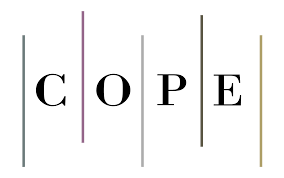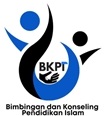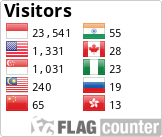Publication Ethics Statement
Publication Ethics Statement
The publication of an article in a peer-reviewed journal is a direct reflection of the quality of the work of the authors and their supporting institutions. It is an integral component in the construction of a respected network of scholarly knowledge. Peer-reviewed articles support and embody the scientific method. Therefore, it is important to agree upon standards of expected ethical behavior for all parties involved in the act of publishing: the author, the journal editor, the peer reviewer, the publisher, and the society.
This journal adheres to the COPE (Committee on Publication Ethics) Best Practice Guidelines for Journal Editors.
1. Authors' Responsibilities
Authors are expected to comply with the following ethical guidelines:
-
Originality and Plagiarism: Authors must ensure that their submitted work is entirely original and has not been previously published in whole or in part elsewhere, nor is it under consideration for publication by another journal. Any instances of plagiarism, self-plagiarism, or misuse of others' work must be avoided. Proper citation and acknowledgment of all sources must be provided.
-
Authorship and Contributorship: Authorship should be limited to those who have made significant intellectual contributions to the conception, design, execution, or interpretation of the reported research. All individuals who have made significant contributions should be listed as co-authors. All listed authors must have approved the final version of the manuscript and agree with its submission.
-
Data Accuracy and Integrity: Authors are responsible for presenting accurate and honest research results. Data should be represented accurately in the paper, and sufficient detail and references should be provided to permit others to replicate the work. Fraudulent or knowingly inaccurate statements constitute unethical behavior and are unacceptable.
-
Disclosure and Conflicts of Interest: Authors are required to disclose any financial or other significant conflicts of interest that might be construed as having improperly influenced the results or interpretation of their research. All sources of financial support for the project should be acknowledged.
-
Multiple, Redundant, or Concurrent Publication: Authors should not submit the same manuscript describing the same research to more than one journal concurrently. Submitting the same work to multiple journals is considered unethical publishing behavior.
-
Reporting of Errors: If an author discovers a significant error or inaccuracy in their own published work, it is their obligation to promptly notify the journal editor or publisher and cooperate with them to correct or retract the paper as necessary.
2. Editors' Responsibilities
The Editorial Board is responsible for maintaining the integrity of the scholarly record:
-
Editorial Decisions: Editors must evaluate submitted manuscripts objectively for their intellectual content, without regard to authors' race, gender, sexual orientation, religious belief, ethnic origin, citizenship, or political philosophy. Editors are responsible for deciding which of the articles submitted to the journal should be published, based on the manuscript's importance, originality, and relevance.
-
Fairness and Impartiality: Editors must ensure a fair and impartial peer-review process and decision-making, free from bias.
-
Confidentiality: Editors and editorial staff must guarantee the confidentiality of the submitted manuscript. Unpublished materials disclosed in a submitted manuscript must not be used in an editor's own research without the express written consent of the author.
-
Handling Misconduct: Editors will be guided by COPE flowcharts if there is any suspected case of research or publication misconduct (e.g., plagiarism, data fabrication, authorship disputes). They must take appropriate action when misconduct is suspected.
3. Reviewers' Responsibilities
Peer reviewers play a crucial role in the publication process:
-
Contribution to Editorial Decisions: Peer review assists the editor in making editorial decisions through the editorial communications with the author and may also assist the author in improving the paper.
-
Objectivity and Timeliness: Reviews must be conducted objectively and in a timely manner. Any reviewer who feels unqualified to review the research reported in a manuscript or knows that its prompt review will be impossible should notify the editor and excuse themselves from the review process.
-
Confidentiality: Any manuscripts received for review must be treated as confidential documents. They must not be shown to or discussed with others except as authorized by the editor.
-
Disclosure of Conflicts of Interest: Reviewers must declare any potential conflicts of interest that might bias their review and should refuse to review manuscripts where such a conflict exists. They must not use unpublished information or ideas obtained through peer review for their own advantage.

 This journal is a member of and subscribes to the principles of the Committee on Publication Ethics (COPE)
This journal is a member of and subscribes to the principles of the Committee on Publication Ethics (COPE)








